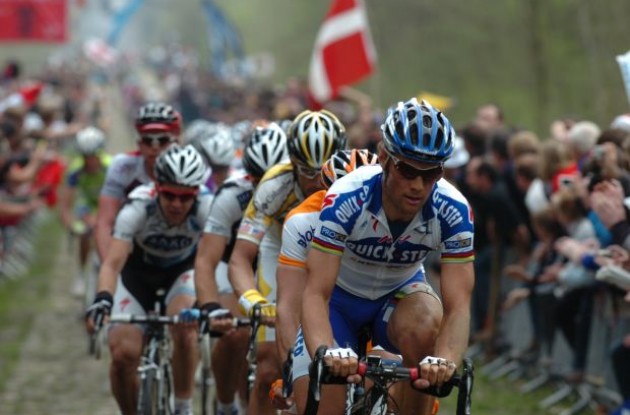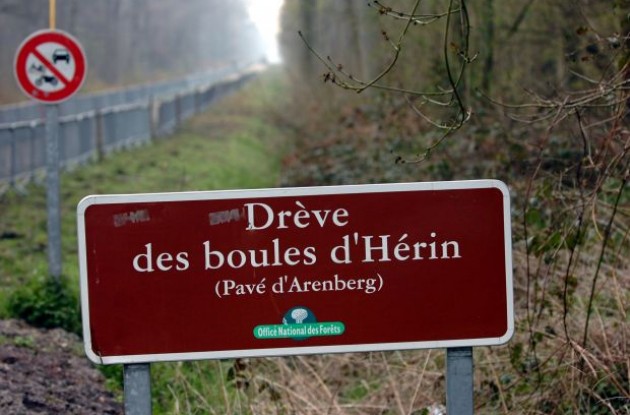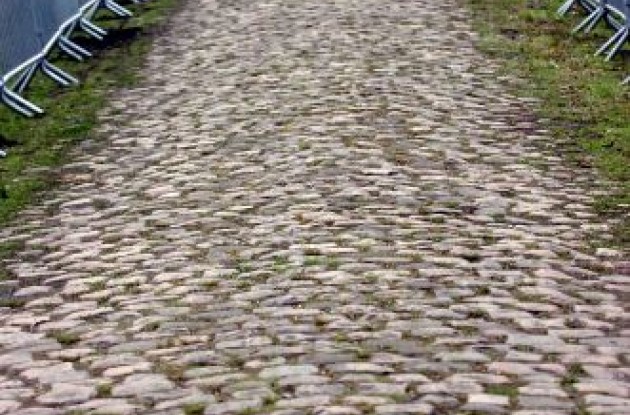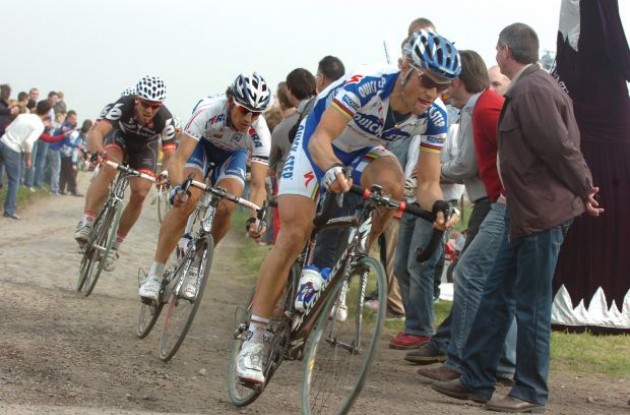Hard Men Shed Blood and Sweat to Win in Roubaix
Sunday's 2010 Paris-Roubaix caps string of tough, one-day classics.
Never mind the Tour de France. If you want to see cycling at its must brutal and bloody, travel to Flanders and northern France every Spring.
Here the most prestigious and competitive, not to mention downright lethal, one-day races of the cycling season finishing this Sunday at the cobblestone classic Paris-Roubaix are held before a roadside audience as used to spills as thrills.
American cyclist Tyler Farrar first moved to the Flanders region of western Belgium in 2002 because he said the best way to win a bike race here is to live and train on the local roads.
"There's only about 20 climbs in Flanders, and you use some combo of 8 or 12 of them in every race," Farrar told Reuters on Sunday after the 15-climb, 262-km (162-mile) Tour of Flanders, peeling off gloves to show a bloodied hand shaking with fatigue.
Farrar crashed twice on Sunday, the first time just a few kilometers from his home after four hours of racing, the second just minutes later when he slammed into the back of another team's support vehicle while trying to rejoin the peloton.
"After that, I thought 'Okay, this is ridiculous, I'm just going to quit.' My director told me on the radio not to, because this wasn't the hard part yet."
The 26-year-old from Wenatchee, Washington who rides for the Garmin Transitions team went on to finish fifth behind Swiss rider Fabian Cancellara.
Farrar also won a stage in the 3 Days of De Panne last week and sprinted to victory in Antwerp at the 202-km Grote Scheldeprijs on Wednesday.
"I guess it's a good thing I didn't quit," he said.
Race organizers at the Tour of Flanders said more than one million cycling fans stood on the side of the road on Sunday, a fifth of the local population, to cheer on the race. After a long, cold winter, most still wore heavy coats under gray skies.
The race winds through dozens of brick-lined villages in the first 150km. Fans turn out with small red bottles of Jupiler beer in one hand and yellow Flemish flags in the other.
From the Garmin Transitions team car riders moved in and out of the peloton at 45km/h to drop jackets, take bottles, and consult Australian director Matt White about the course ahead.
"I did this race seven times as a professional. Four times it was dry and I finished. The three times it rained I never saw the end," White said, all the while monitoring a television broadcast, a race radio, a team radio and a flow of bottles.
"On some of these cobbled climbs if somebody has a problem, has to unclip, then that's the end of the bike race for everybody else behind him."
The sun came out and Dutch rider Martijn Maaskant came to fetch a bottle and hand off his jacket. He swerved slightly, touched his handlebars to the car and slammed to the ground.
White swerved to a halt and Spanish mechanic Inaki Goiburu leapt out to help a bleeding, unsmiling Maaskant to his feet. The rider's fixed expression barely changed. His only interest was to rejoin the race.
A flood of profanity poured out of White once Maaskant was back up and moving.
"You better get the doctor to spray something on those wounds, Martijn, so you don't get infected for next week," White said.
Maaskant, favored for Paris-Roubaix, pedaled to a woman leaning out of a moving car with a large spray bottle. He peeled off his torn spandex arm warmers and exchanged them for fresh ones with Goiburu through the rear window of the team car.
"You can get everything thrown at you in one day out here," Farrar later said.
"It's the most beautiful day of racing in the year. Wind, rain, mud, sun, cold, warmth, small technical roads, cobbles, pretty brutal climbs. There's never an undeserving winner."
Farrar's Canadian teammate Svein Tuft, 32, also crashed out of the Tour of Flanders, and watched the finish from a television set in the team bus, his neck in a cervical collar. "I'm racing against guys who have been on these roads since they were 12. I started racing when I was 23, and I didn't come over to Europe until I was 31," Tuft said.
"I still have a lot to learn. This local knowledge is important, all the different climbs, all the corners."
But Tuft was smiling in spite of the pain and not having finished the race.
"Sometimes when you come out into the wind and there's nothing you can do, no amount of pedaling will put back into the group, but you've protected your guy, done your job, got him into the final selection," Tuft said.
"It's very satisfying to contribute. Then you're happy on the day."











